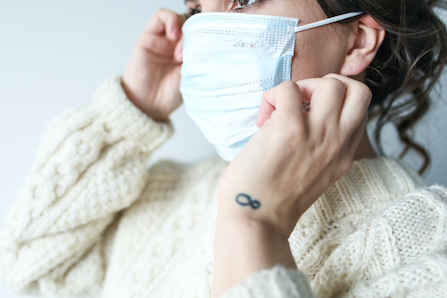Will this COVOID-19 Crisis Bring Trauma?
Many of us are concerned about getting traumatized by this crisis. People who have already experienced PTSD in their lives are more susceptible to additional trauma, while many
of us have no prior experience with it and are wondering if something like this could cause long term effects. These are important questions!
So, let’s learn about what trauma is and more importantly, how we can prevent it.
In the simplest of explanations, trauma occurs when our resources are completely overwhelmed by our stressors, and we are powerless to do anything about it. This leaves us without control, and we are hurt as a consequence. Think of it as a continuum between calm on one side, stress in the middle, and then trauma on the far end. Stress can be good and bad for us. Eu-stress activates us, it gets us going, it motivates us. But too much stress starts to overwhelm us. If the stress continues, we can feel traumatized. Some people experience this and develop Post-Traumatic Stress Disorder, while others are able to bounce back.
An environmental stressor like COVOID-19 need not traumatize us, as long as we keep up our resources and don’t get into a situation where we feel completely powerless. An antidote to trauma and stress is finding ways to stay in control, and to find meaning in what we are facing.
If you are religious, you might find yourself asking, “God, what would you have me learn during this trial?”. Others challenge themselves to focus on what they can walk away with as a result of the trial, “There is much that I can’t control, but I can control what I eat, how I exercise, my immune system, whether or not I leave my property.” Generally speaking we have control over ourselves, our outlook, our behaviors, our bodies. Focus on these things.
The other determinant in what becomes traumatic, is the kind of support you have. So that if you have felt completely overtaken by the trial or stressor, you are able to find someone to talk to about what you have been through. Or if you do get very ill, and are overcome by feeling weak and powerless, you are able to find emotional and social support after the fact.
Think of trauma like being forced to eat a heavy meal of rice and beans and meat. These are foods that generally don’t digest well together. They sit in your stomach and feel heavy, and they cause a bad case of indigestion. You have to adjust yourself, you lie down on the couch for hours, you eat Tums, and you moan and groan during your belly aches. The question is whether or not your stomach acids will be able to break down this very heavy meal or not. So you give yourself space and time, and give your body every resource to aid in the digesting of this meal. If something has overwhelmed your resources, do everything you can to digest it emotionally: Talk about it, write about it, process it slowly until you can look back at it and learn some lessons from having gone through it.
Finding meaning in spite of what has happened is the key to bypassing trauma. This is when the experience no longer owns you, but you own it because you have learned and grown because of it!

